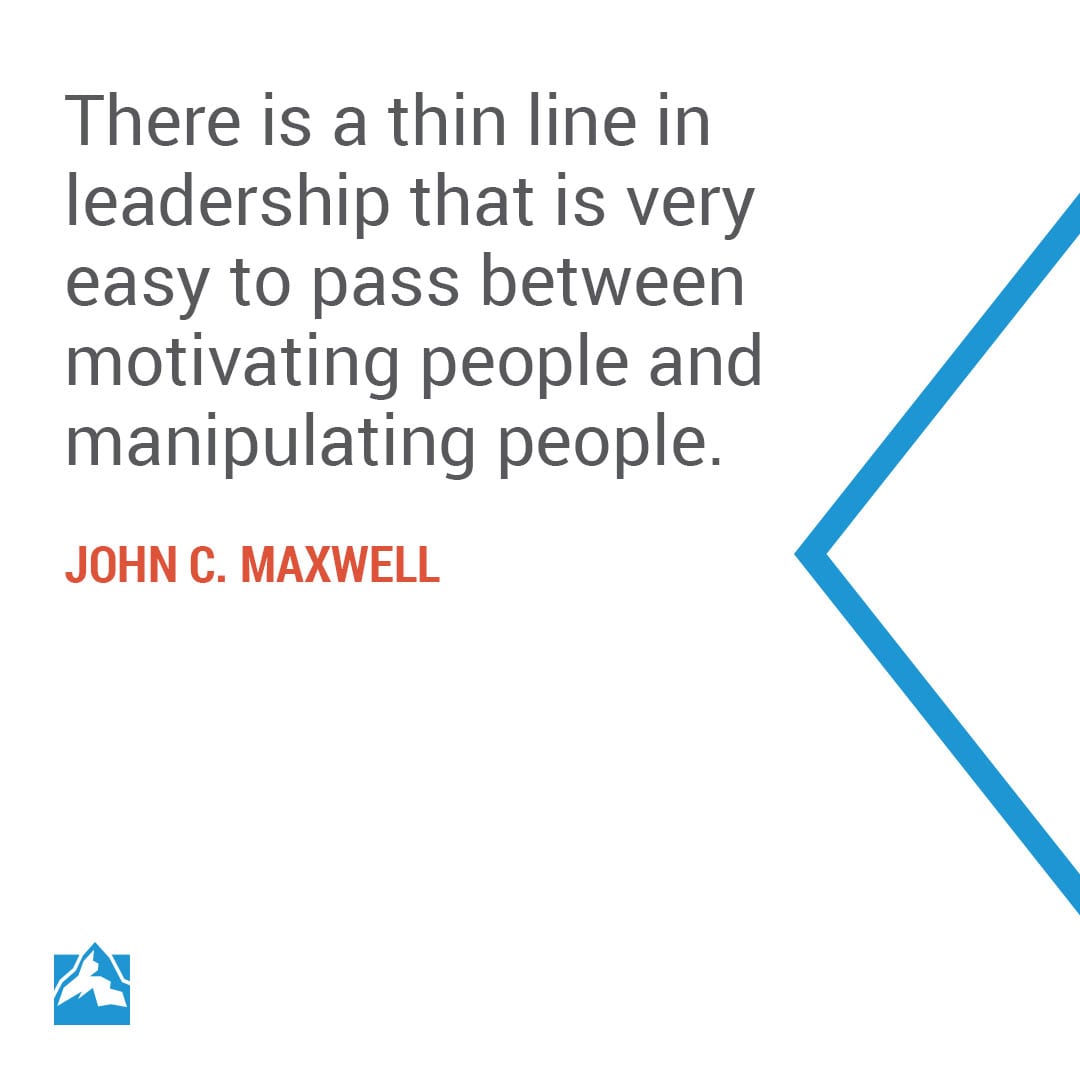
There is a thin line in leadership that is very easy to pass between motivating people and manipulating people.

There is a thin line in leadership that is very easy to pass between motivating people and manipulating people.
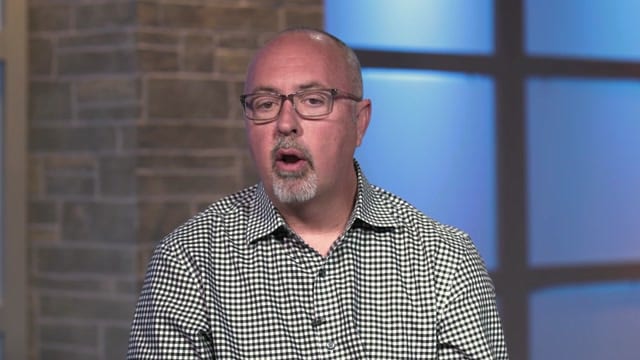
Betenbough Homes has specifically set up their organization so their employees would flourish; Rick Betenbough explains how this is accomplished through each manager’s leadership.
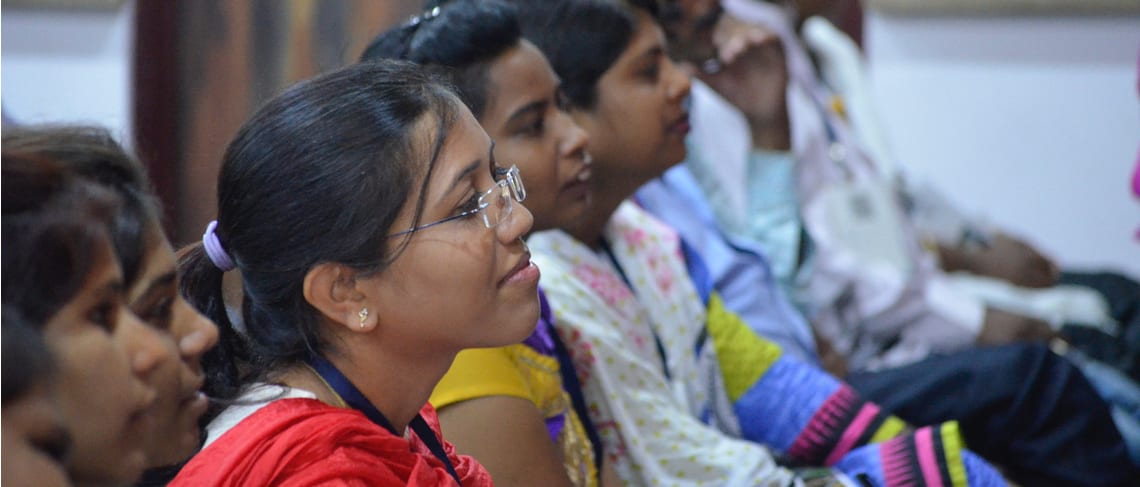
 When Valson Varghese hosted the GLS for the first time at his church in India, he felt a stirring for his greatest passion—serving and equipping youth to impact the nation with the gospel.
When Valson Varghese hosted the GLS for the first time at his church in India, he felt a stirring for his greatest passion—serving and equipping youth to impact the nation with the gospel.
Valson is a youth coordinator for the Assemblies of God Church in India, which serves close to 11,000 churches.
“In our country 54 percent of India’s 1.2 billion people are youth. So we are talking close to 650 million people!” Valson exclaims. “If we don’t reach them, then we don’t make a significant impact in our nation.”
Valson is called to serve youth, and has been working in youth ministry for close to 24 years. “It’s not a stepping stone to another higher office—it’s a calling,” Valson explains. “I am passionate about youth and seeing them develop in the area of leadership. I want to help them become passionate for God, passionate for righteousness and passionate to make an impact.”
In a country that is only three percent Christian, Valson sees the GLS as a critical tool to talk about leadership from a Christian perspective. The GLS is able to equip emerging leaders to have an impact in business, politics, education and medicine. “The principles that are taught and shared here can be used in several facets of life. I’m very keen as to how we can use these GLS principles, especially with youth leaders. If the youth can be impacted for the gospel and for God, I believe we can make a change in our nation.”
Valson’s passion to equip leaders to share the gospel with all people in the nation of India is evident in his life’s work, but is surprising to some. “A lot of times Christians are afraid of our Muslim friends,” Valson explains. “But they are wonderful people and I love them.
“My youngest brother was a major in the Indian army in Kashmir. In one of the operations, a couple of terrorists came and killed my brother. The news reporters came to my home to find out how I felt and I told them…
“The greatest enemy is not across the border, it’s within each of us.
“We cannot just hate somebody because of their ethnicity or religious background. God put a special place in my heart to reach our Muslim friends.”
With a heart for the entire nation of India, whether Hindu, Muslim, Buddhist or Christian, Valson knows that in order to impact the nation, they need Christ-centered leaders. And by focusing on emerging leaders, Valson is equipping the next generation who will go on to transform the country.
Thank you for supporting leaders like Valson who are equipping hundreds of thousands of youth leaders in India.
“I want to say thank you to every one of you who has contributed and supported this ministry and the GLS,” Valson shares. “You helped bring these principles to various nations of the world. I can tell you from India, that it’s going to make a big impact. I want to say thank you. I pray this will reach many more. I pray that it will impact in our nation in an even greater way when we see righteousness and justice restored. So I’m excited for it. Thank you.”
To support leaders like Valson, consider the WCA in your giving this year by going to www.willowcreek.com/give
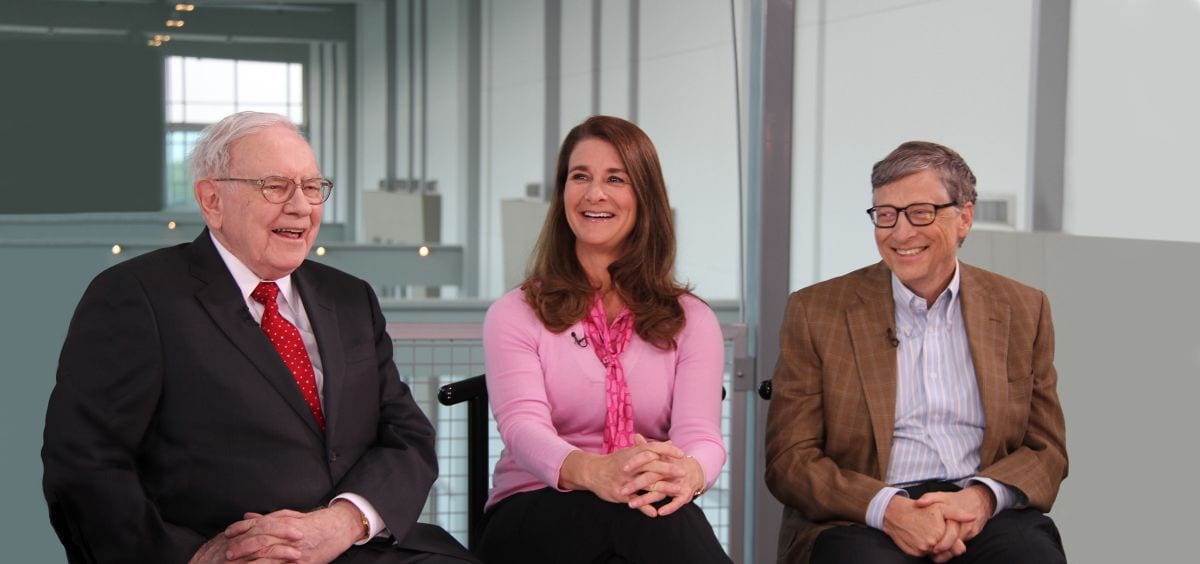
Our 2017 annual letter is addressed to our dear friend Warren Buffett, who, in 2006 donated the bulk of his fortune to our foundation to fight disease and reduce inequity. A few months ago, Warren asked us to reflect on what impact his gift has had on the world.
What follows is our answer to him.
It’s a story about the stunning gains the poorest people in the world have made over the last 25 years. This incredible progress has been made possible not only by the generosity of Warren and other philanthropists, the charitable giving of individuals across the world, and the efforts of the poor on their own behalf—but also by the huge contributions made by donor nations, which account for the vast majority of global health and development funding.
Our letter is being released amid dramatic political transitions in these countries, including new leadership in the United States and the United Kingdom. We hope this story will remind everyone why foreign aid should remain a priority—because by lifting up the poorest, we express the highest values of our nations.
One of the greatest of those values is the belief that the best investment any of us can ever make is in the lives of others. As we explain to Warren in our letter, the returns are tremendous.
Dear Warren,
Your gift a decade ago left us speechless. It was the biggest single gift anyone ever gave anybody for anything, and we knew we owed you a fantastic return on your investment.
In this letter, we’ll share some highlights with you, and we’ll focus on global health—because that was the starting point of our philanthropy, and it’s the majority of what we do.
We don’t have sales and profits to show you. But there are numbers we watch closely to guide our work and measure our progress.
Let’s start with the most important one.
Melinda: Every September, the UN announces the number of children under five who died the previous year. Every year, this number breaks my heart and gives me hope. It’s tragic that so many children are dying, but every year more children live.
Bill: If you add up each year’s gains, 122 million children under age five have been saved over the past 25 years. These are children who would have died if mortality rates had stayed where they were in 1990.
Melinda: Saving children’s lives is an end in itself. But it has other benefits as well. If parents believe their children will survive—and they have access to contraceptives that let them time and space their pregnancies—they’re able to choose how many children to have.
Bill: When a mother can choose how many children to have, her children are healthier, they’re better nourished, their mental capacities are higher—and parents have more time and money to spend on each child’s health and schooling. That’s how families and countries get out of poverty.
Melinda: Coverage for the basic package of childhood vaccines is the highest it’s ever been, at 86 percent. And the coverage gap between rich countries and developing countries is the lowest it’s ever been. This explains a lot of the gains in childhood survival—vaccines are the single biggest reason for the drop in under-five deaths.
Bill: The first day of life is especially dangerous for babies, and more than 2.5 million newborns die in their first month. The world hasn’t made as much progress in this area as we have in others. Newborn deaths now represent 45 percent of all childhood deaths, up from 40 percent in 1990.
Melinda: But some very poor countries have improved their survival rates by encouraging breastfeeding and increasing the number of trained health workers attending births. And health centers we’re funding in Africa are now doing autopsies so pathologists can learn more about the causes of newborn deaths. Bill had the opportunity to observe one of these autopsies last year in South Africa.
Melinda: Malnutrition makes kids more likely to die from childhood diseases. It also stunts their growth and hurts their cognitive development.
Bill: Malnutrition destroys the most human potential on the planet. We’re funding research to identify key nutrients and find ways of getting them into the diets of kids in poor countries. When researchers make these discoveries, the rise in the number of children who achieve their potential will change the world.
Melinda: In the developing world, 300 million women have access to modern contraceptives. This number is an all-time high, but there are still 225 million women in developing countries who want to use modern contraceptives and can’t get them. That’s tragic. Contraceptives save lives and reduce poverty. When women in developing countries space their births by at least three years, their children are almost twice as likely to reach their first birthday. When women can time and space their pregnancies, they are more likely to advance their education, earn an income, and have healthy children. This leads to greater prosperity—and it starts with women who have the power to choose how many children to have.
Bill: Poverty is sexist. The poorer the society, the less power women have. Men decide if a woman is allowed to go outside, talk to other women, earn an income. The male dominance in poorer societies is mind-blowing.
Melinda: Fortunately, as a society becomes better off, a woman’s position in that society improves. But how do women in poor societies get more power now? Actually, women get more power from other women. About 75 million women are involved in self-help groups in India alone. The groups might form to help women get loans or share health practices, but once things get started, the women take it in the direction they want to go. That is empowerment.
Bill: In a recent survey, just one percent knew that the world had cut extreme poverty in half, and 99 percent underestimated the progress. The survey wasn’t just testing knowledge, it was testing optimism, and the world didn’t score so well.
Melinda: Optimism isn’t just a belief that things will automatically get better; it’s a belief that we can make things better. And in many ways we are making the world better—global poverty is going down, childhood deaths are dropping, literacy is rising, the status of women and minorities around the world is improving.
Bill: Warren, it won’t surprise you to know we’re more optimistic than ever.
Melinda: And more impatient too.
Bill: Especially for this:
Bill: This is the number we’re striving toward every day at the foundation. Zero malaria. Zero HIV. Zero TB. Polio is closest to reaching that magic number. In 1988, there were 350,000 new cases of polio worldwide. Last year, there were 37.
Melinda: Those cases were confined to Northern Nigeria and parts of Afghanistan and Pakistan. Immunizing children in conflict areas is hard—and dangerous. We’re in awe of the vaccinators who are taking risks to reach each child.
Bill: If things stay stable enough in the conflict areas, humanity could see its last case of polio sometime this year.
Warren, these numbers help capture the successes and struggles in global health. The problems are still here because they’re so hard to solve. But we have confidence in the world’s talent, energy and empathy—and that lets us end our letter with a bright look ahead.
Polio will soon be history. In our lifetimes, malaria will end. No one will die from AIDS. Few people will get TB. Children everywhere will be well nourished. And the death of a child in the developing world will be just as rare as the death of a child in the rich world.
We can’t put a date on these events, and we don’t know the sequence, but we’re confident of one thing: The future will surprise the pessimists.
Thank you for putting your trust in us, Warren. We won’t let you down.
—Bill and Melinda
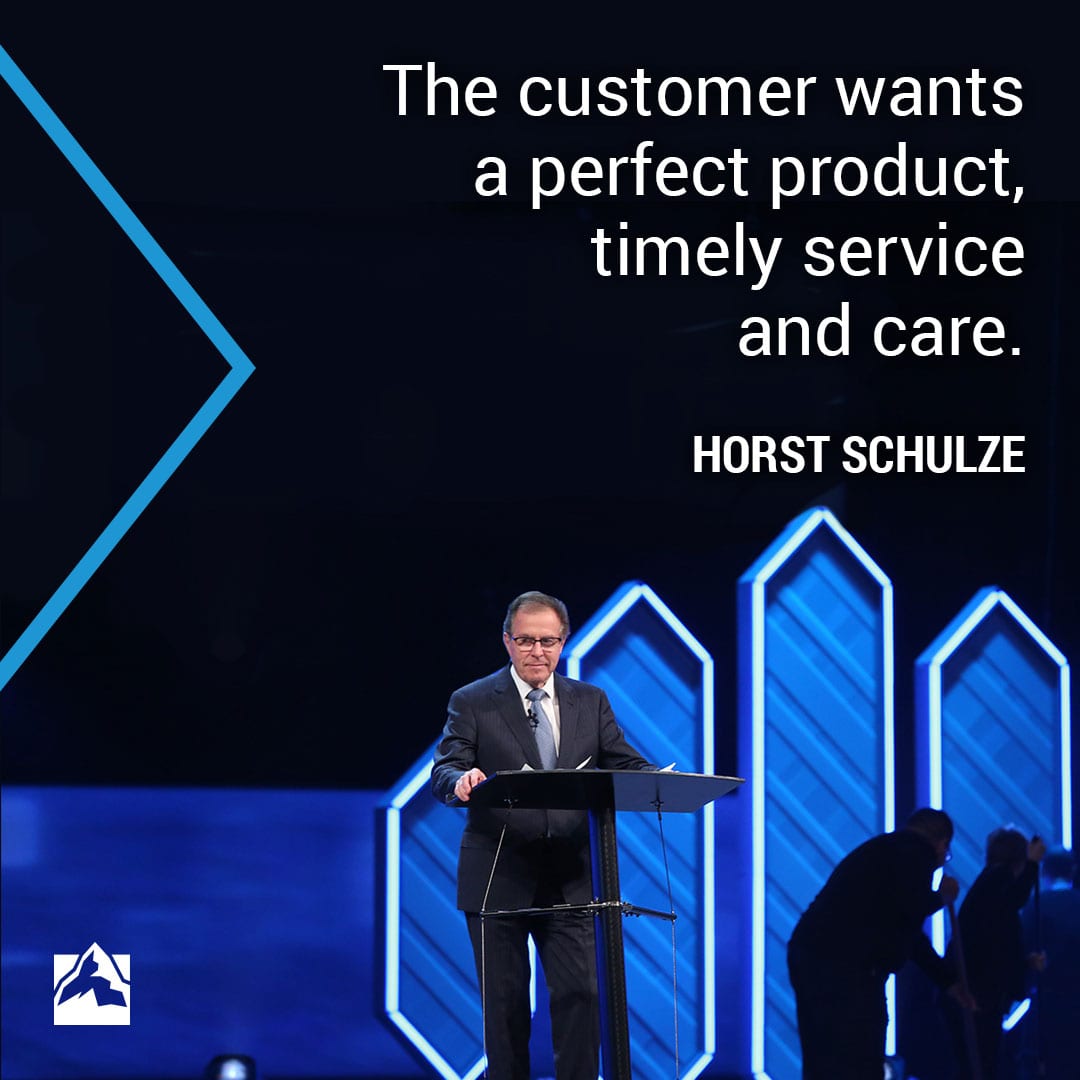
The customer wants a perfect product, timely service and care.

 When it all comes down to it, both life and leadership are fueled by our relationships.
When it all comes down to it, both life and leadership are fueled by our relationships.
Whether it’s maintaining personal health, thriving in a certain situation, reaching goals or organizational performance, leadership requires our reliance both on God and people—the “others” in our circle. We need them. And our outcomes greatly depend on the quality of how those relationships are working.
There are basically four possibilities when it comes to the kinds of relational connections we have in our lives, both personally and professionally. Drawing them into a rectangle, this model forms four corners. The first corner is what I call “no connection,” which happens when we find ourselves with little or no real connection to key individuals in our lives.
This can happen even when we have people around us. While we may be in relationships, both personally and professionally, we find ourselves with little or no connection to them. We are not understood, fueled, built-up, corrected and challenged in the ways that are necessary for thriving.
It could be a marriage, a friendship, a board of elders or directors, a direct report or a team. We need connection and are not getting it, for a variety of reasons.
Connection is broadly defined being able to be who we really are with others who are important to us. And, for them to be who they really are with us.
A connected relationship is honest, loving, kind and true…where we have operatives of “grace and truth” in our lives. We need love and support, but we also need candor and honest help.
Leaders who find themselves in this “less-than-connected” position with someone significant may experience many symptoms—all leading to lesser performance:
The first question leaders should ask themselves, is “how connected am I to the people who are crucial to my well-being and performance?” To the degree that we experience a disconnect from the ones who are important to “making it all work,” the more it is “not going to work.”
So, practically speaking:
Living in a state of “no connection” is fatal for leaders.
Examine your life with a vengeance. If you find yourself in a state of “no connection,” do what God always asks us to do: get connected to Him and a key inner circle of people. Jesus did this when he prayed for one-ness with his inner circle in John 17. Find the “one-ness” He wants for you, and that will drive everything else.
Next week, we’ll explore Corner Two: Bad Connection.
God Bless,
Henry
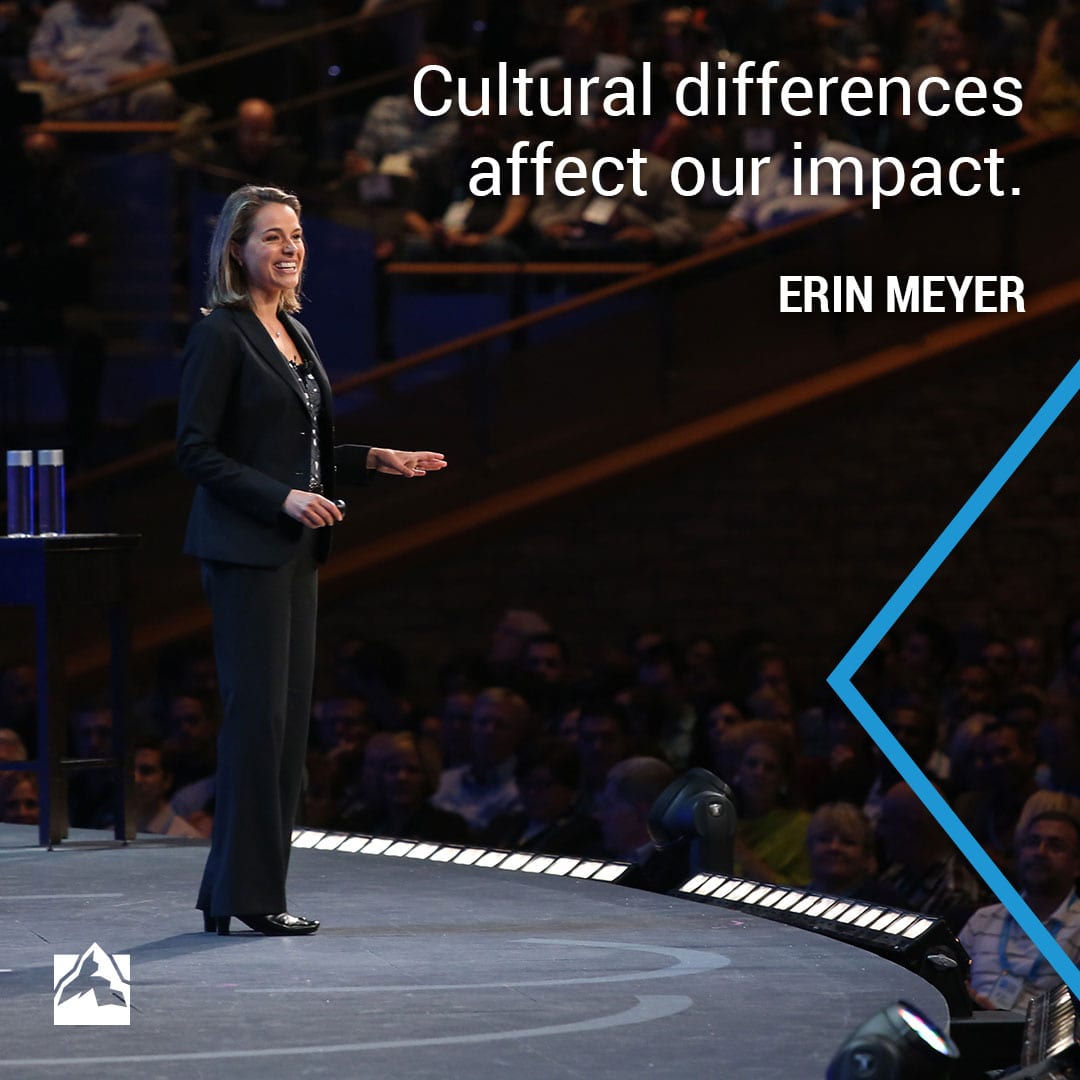
Cultural differences affect our impact.
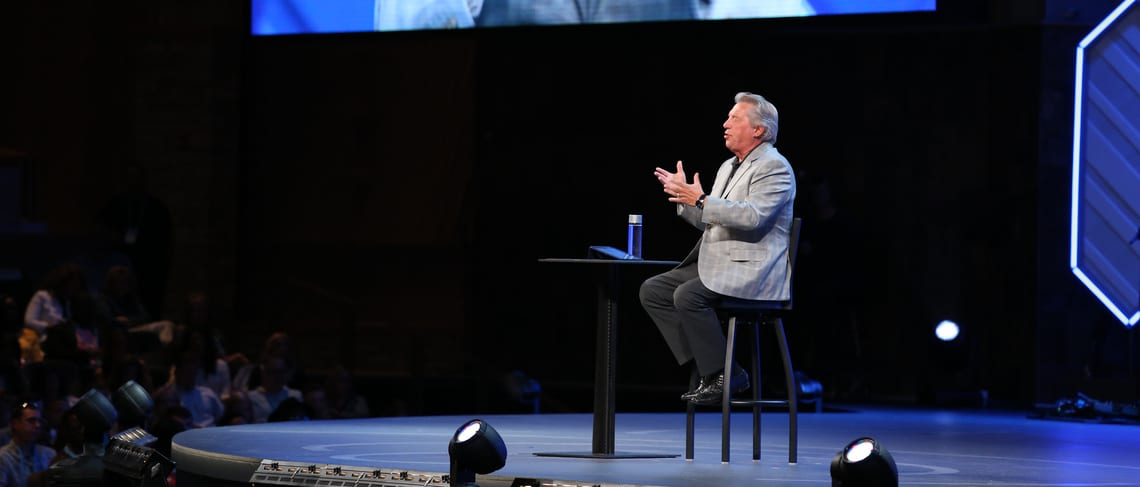
John Maxwell was a favorite speaker at The Global Leadership Summit in 2016. He challenged people to add value to the lives of people every day, believing it to be at the very core of good leadership.
At the GLS in Malawi, Africa, John’s message had no less impact.
The story he told about a woman named Gaby from Paraguay had particular influence on leaders in Malawi.
He talked about how Gaby was in one of his leadership training courses, and through what she learned, felt called to lead a transformational movement in her country. She ended up quitting her job, and said she was going to transform her country! Gaby did not hold back. Ultimately, she met the president of Paraguay and connected him with John Maxwell. Her efforts have resulted in the training of more than 75,000 people over the last year. “That’s totally God,” Gaby shares.
Challenged by John’s story of how Gaby followed God’s call, and impacted so many lives, two women in Malawi were challenged and encouraged to take a risk to add value to people, and bring transformation to their own nation — one through government and one through business.
Transforming Government
 During the session, when John Maxwell asked who would be the next Gaby, Sophie raised her hand up high and made her way to the podium.
During the session, when John Maxwell asked who would be the next Gaby, Sophie raised her hand up high and made her way to the podium.
Sophie works for the Malawi Auditor General’s government office. She was saddened that the government sector of the Malawi community was so poorly represented at the GLS.
One of the issues that breaks Sophie’s heart is how Malawi is plagued with a corruption scandal code named, “Cash Gate.” Due to this corruption scandal, millions of Kwacha people have been siphoned out of the government coffers into the private accounts of politicians leaving the country, crippling the government’s ability to provide needed social services to the people of Malawi. As a result, development partners have also pulled their support due to lack of commitment on the part of government to deal with the corruption.
 Sophie requested for prayer and made a commitment to begin to bring change to her own government office.
Sophie requested for prayer and made a commitment to begin to bring change to her own government office.
The community prayed for and commissioned her as they also pledged their support to resource her as she makes inroads into the government.
Sophie’s desire is to have an impact on the leadership in her department to end the endemic of corruption in the government. Indeed she’s been raised to a position for such a time as this. Let us keep Sophie in our prayers!
Transforming the Business Community
 Judith is a Councilor with the Mzuzu City Council, the leadership team that runs the business of the city. Her decision to attend the GLS was last minute after a challenge from the Mzuzu GLS Team Leader, Pastor Zohra Matundu.
Judith is a Councilor with the Mzuzu City Council, the leadership team that runs the business of the city. Her decision to attend the GLS was last minute after a challenge from the Mzuzu GLS Team Leader, Pastor Zohra Matundu.
Being in leadership, she thought it would not hurt to attend. By the end of day one, she realized how extremely valuable the leadership teaching would be for her business community, and was already planning a mini GLS event for all the Councilors in Mzuzu City.
So when John Maxwell asked who would be the next Gaby, Judith was ready!
Her biggest passion is for women Councilors who do not have as much access to the leadership development opportunities that the men have. Her hope is that eventually she will be able to bring all the female councilors in the region together and share the lessons that she learned from the GLS.
 Judith is so excited for this opportunity for her to influence the quality of leadership in her city. The GLS team in Malawi is partnering with Judith to make the dream of a mini GLS for the Mzuzu City Councilors a reality. Indeed she’s been raised to a position for such a time as this. Let us keep Judith in our prayers!
Judith is so excited for this opportunity for her to influence the quality of leadership in her city. The GLS team in Malawi is partnering with Judith to make the dream of a mini GLS for the Mzuzu City Councilors a reality. Indeed she’s been raised to a position for such a time as this. Let us keep Judith in our prayers!
How are you adding value to people today?
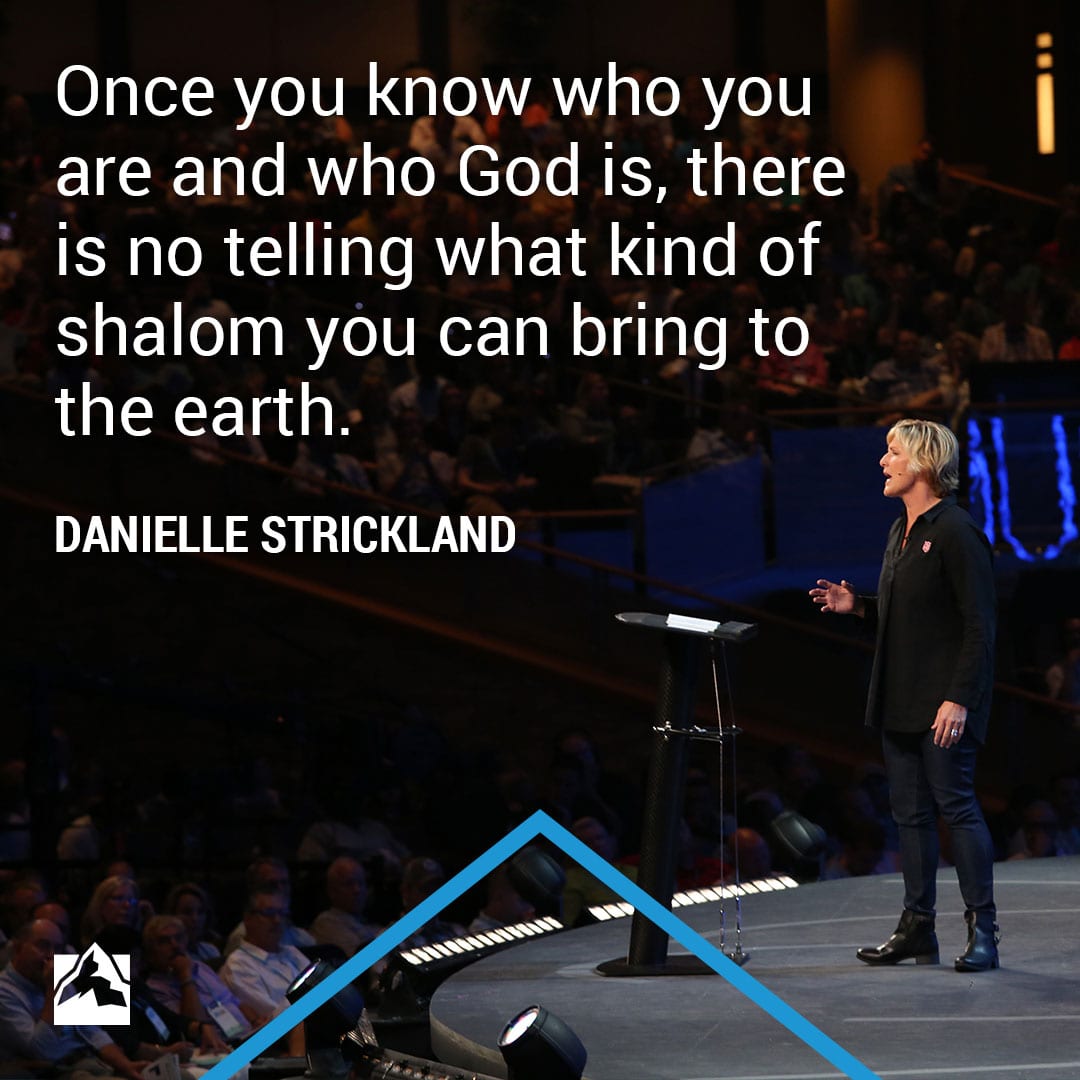
Once you know who you are and who God is, there is no telling what kind of shalom you can bring to the earth.
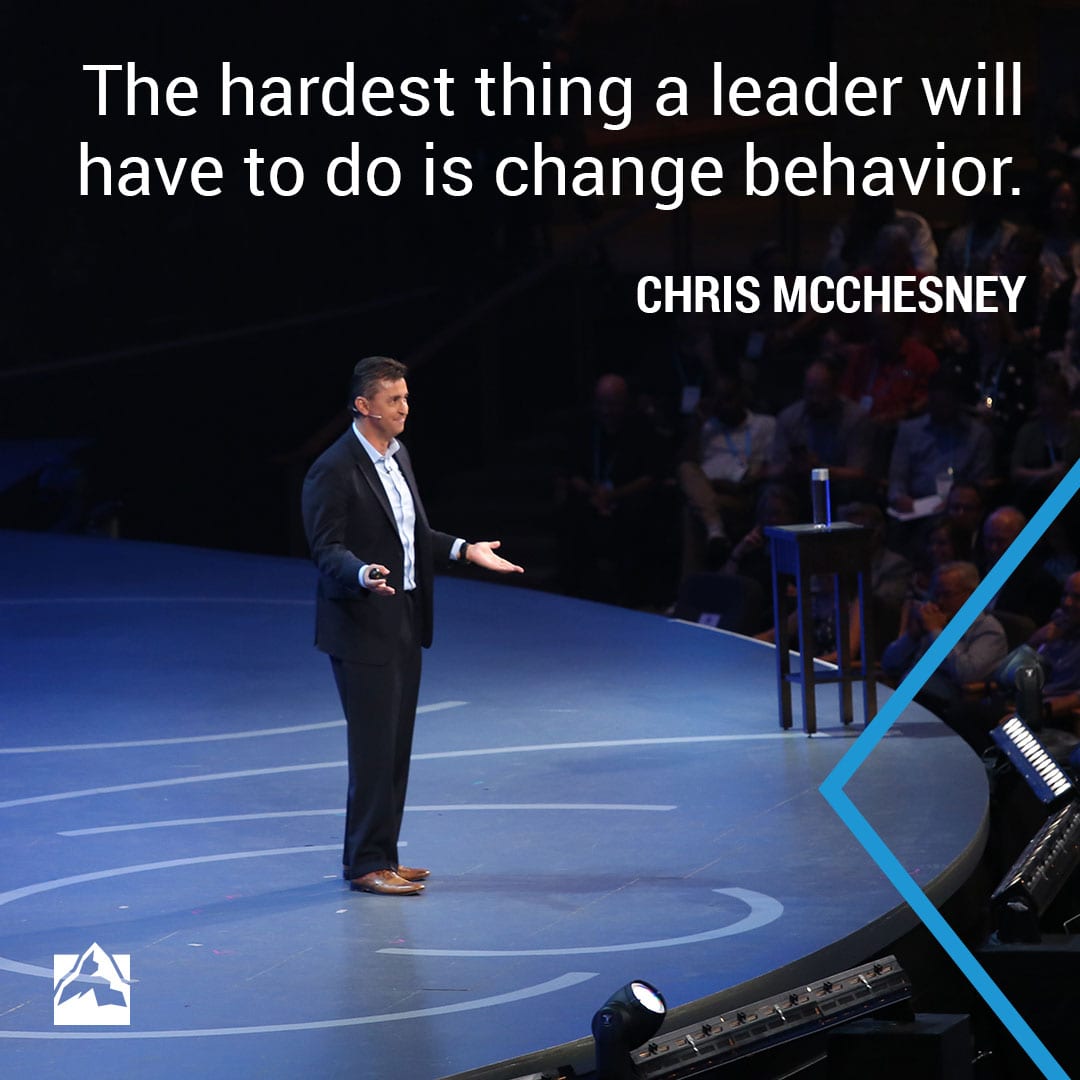
The hardest thing a leader will have to do is to change behavior.
“We welcome and encourage comments on this site. There may be some instances where comments will need to be edited or removed, such as:
If you have any questions on the commenting policy, please let us know at heretoserve@globalleadership.org”
Recent Comments